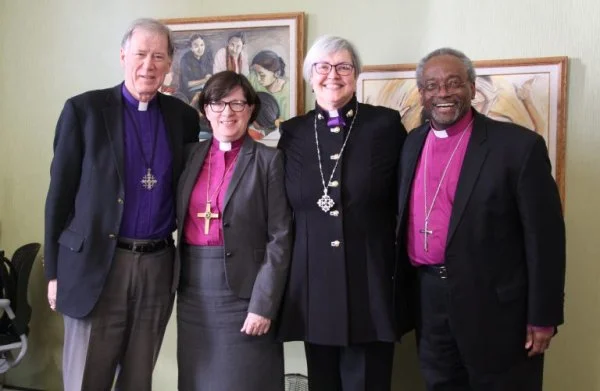- Français
- |
- Booklist
- |
- Week of Prayer
- |
- Links
- Areopagus - a forum for dialogue
- Academic journals
- Acronyms
- Bible tools
- Bibliographies
- Booksellers and publishers
- Churches
- Canadian church headquarters
- Directory of Saskatchewan churches
- Retreat centres
- Saskatchewan church and non-profit agencies
- Ecumenism.net Denominational links
- Anabaptist & Mennonite
- Anglican
- Baptist
- Evangelical
- Independent episcopal
- Lutheran
- Methodist, Wesleyan, and Holiness
- Miscellaneous
- Mormon
- Orthodox (Eastern & Oriental)
- Para-church ministries
- Pentecostal / charismatic
- Presbyterian & Reformed
- Quaker (Society of Friends)
- Roman & Eastern Catholic
- United and uniting
- Documents of Ecumenical Interest
- Ecumenical agencies
- Ecumenical Booklist
- Ecumenical Dialogues
- Glossary
- Human rights
- Inter-religious links
- Justice & peace
- Lectionaries
- Religious news services
- Resource pages
- Search Ecumenism.Net
- |
- Documents
- Ancient & Medieval texts
- Ecumenical Dialogues
- Interreligious
- Anabaptist & Mennonite
- Anglican
- Evangelical
- Lutheran
- Orthodox
- Reformed & Presbyterian
- Roman & Eastern Catholic
- United & Uniting
- Miscellaneous churches
- Canadian Council of Churches (CCC)
- Conference of European Churches (CEC)
- Interchurch Families International Network (IFIN)
- National Council of Churches in Australia (NCCA)
- Lausanne Committee for World Evangelism (LCWE)
- World Council of Churches (WCC)
- Other ecumenical documents
Church traditions
Documents from ecumenical agencies
- |
- Dialogues
- Adventist-Reformed
- African Instituted Churches-Reformed
- Anglican-Lutheran
- Anglican-Orthodox
- Anglican-Reformed
- Anglican-Roman Catholic
- Anglican-United/Uniting
- Baptist-Reformed
- Disciples of Christ-Reformed
- Disciples of Christ-Roman Catholic
- Evangelical-Roman Catholic
- Lutheran-Mennonite
- Lutheran-Mennonite-Roman Catholic
- Lutheran-Reformed
- Lutheran-Roman Catholic
- Mennonite-Reformed
- Mennonite-Roman Catholic
- Methodist-Reformed
- Methodist-Roman Catholic
- Oriental Orthodox-Reformed
- Orthodox-Reformed
- Orthodox-Roman Catholic
- Pentecostal-Reformed
- Prague Consultations
- REC-WARC Consultations
- Roman Catholic-Lutheran-Reformed
- Roman Catholic-Reformed
- Roman Catholic-United Church of Canada
- |
- Quick links
- Canadian Centre for Ecumenism
- Canadian Council of Churches
- Ecumenical Shared Ministries
- Ecumenism in Canada
- Interchurch Families International Network
- International Anglican-Roman Catholic Commission for Unity and Mission
- Kairos: Canadian Ecumenical Justice Initiatives
- North American Academy of Ecumenists
- Prairie Centre for Ecumenism
- Réseau œcuménique justice et paix
- Week of Prayer for Christian Unity
- Women's Interchurch Council of Canada
- World Council of Churches
- |
- Archives
- |
- About us
A grateful moment for ecumenical leadership
— June 21, 201921 juin 2019National Lutheran Bishop Susan Johnson and Anglican Primate Fred Hiltz will complete their ministry together as leaders in partnership of their respective churches this year. Hiltz announced last year that he would be stepping down at the end of General Synod this July and that a new primate would be elected to succeed him.
Hiltz and Johnson shared a common outlook during the 12 years they have worked together. In the same week in 2007, they were both elected head of their church at parallel assemblies held in Winnipeg. Since this coincidental beginning, they have both passionately modelled what each espouses: strong and growing Anglican-Lutheran relations.
During these years, a window of significant opportunity for their respective communities has opened. They have done much to implement and expand upon the Full Communion Agreement of 2001 between Canadian Anglicans and Lutherans. It is important that we not let their significant witness pass without acknowledgement and celebration.
A brief bit of full communion history needs unpacking at this point. It must be seen as part of the ecumenical movement that has strongly influenced the churches both globally and nationally since the 1960s. In Canada, a growing relationship between the two bodies began in the 1970s with early bilateral conversations. This expanded into fuller theological and practical discussions affecting all aspects of church life. It reached an important milestone when both churches signed the Waterloo Declaration in 2001. Michael Peers and Telmor Sartison were their churches’ leaders at the time.
Johnson and Hiltz began working together with considerable experience in the workings of each others’ communities. The Full Communion Agreement gave them much to work with.
The agreement was unique—it called for a partnership, not a union of the two churches. In it, each church maintained its own autonomy while recognizing the basic Christian integrity of the other.
Open communion was practiced and the full interchangeability of ordained leaders was accepted. Both groups were challenged to grow in their understandings of the other’s structures.
Both considered themselves to be catholic churches of the Reformation, with each needing to be continuously reformed. Each church would retain its autonomy of decision and governance while respecting the other’s catholicity and apostolicity. This meant living together in trust, confidence and respect.
Over the years, Hiltz and Johnson modeled the commitment to live out actively the implications of full communion through shared ministry and joint statements.
At upcoming assemblies of both churches, decisions will be made to consider expanding the full communion agreement to the Episcopal Church USA and the Evangelical Lutheran Church in America. The two Canadian leaders have been meeting regularly with their American counterparts for some time, and their hope is that the new transition will be seamless.
As these new steps in Anglican-Lutheran integration are taking place, we need to stop for a grateful moment and thank Primate Hiltz and National Bishop Johnson for setting such a good example.

 Permanent link: ecumenism.net/?p=10556
Permanent link: ecumenism.net/?p=10556
Categories: Anglican Journal • In this article: Anglican Church of Canada, bishops, Episcopal Church, Evangelical Lutheran Church in America, Evangelical Lutheran Church in Canada, full communion

 Lien permanente : ecumenism.net/?p=10556
Lien permanente : ecumenism.net/?p=10556
Catégorie : Anglican Journal • Dans cet article : Anglican Church of Canada, bishops, Episcopal Church, Evangelical Lutheran Church in America, Evangelical Lutheran Church in Canada, full communion



